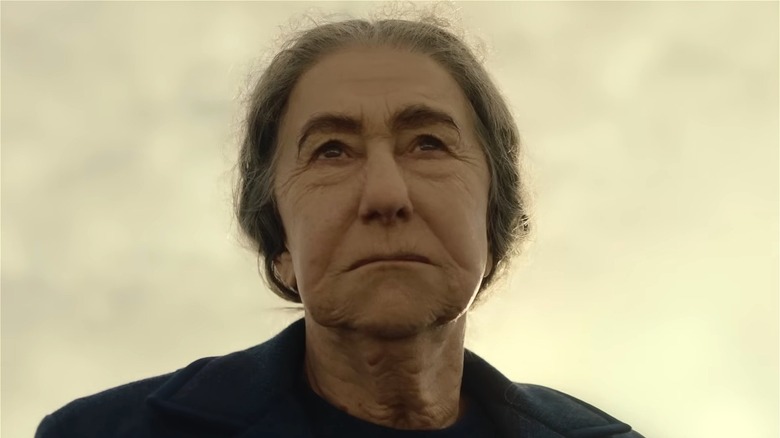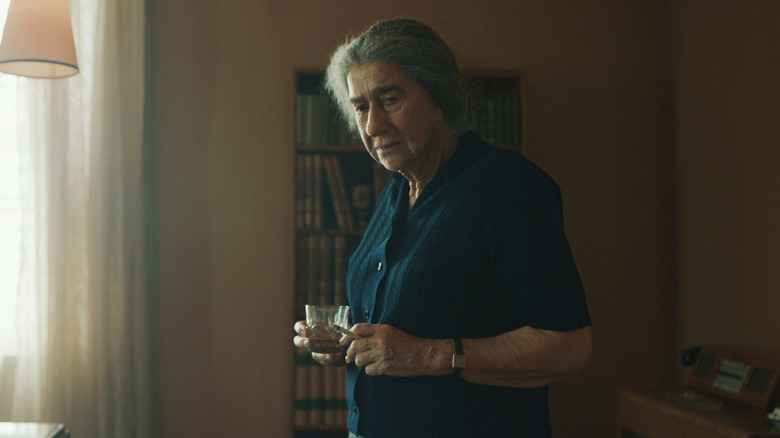Golda Review: A Messy Glimpse Into 1970s Geopolitics
- Reliable performance from Helen Mirren
- Fascinating dynamic between Golda Meir and Henry Kissinger
- Overly simplistic examination of Middle Eastern politics
- Perplexing makeup choices
We have approximately 7 million biopics about men like Winston Churchill and Abraham Lincoln, but when it comes to someone like Golda Meir, one of the most prominent political figures in Israeli history, the field is woefully thin. "Golda," directed by Guy Nattiv and starring Helen Mirren in the lead role, attempts to remedy this by depicting the ailing prime minister amidst the Yom Kippur War. Whether it is quite up to the task is another matter entirely. While Mirren, as always, puts in a strong performance, it is in the service of a mediocre film with murky politics that occasionally border on propaganda.
In the 1960s and 1970s, Golda Meir was a key governmental figure on the geopolitical landscape. With relations between Israel and its Arab neighbors flaring up on a fairly regular basis, and with both the United States and the Soviet Union expressing a keen interest in the Middle East, her position as Israeli prime minister was ... well, let's say complicated. As a politician, she is outwardly unflappable, a figure of strength for her people. But on a personal level, she is rapidly unraveling. Undergoing chemotherapy for advanced lung cancer in secret, she is out of her depth when she receives intelligence that Egypt and Syria are planning a joint surprise attack on two fronts, one that Israel didn't see coming and isn't in a position to respond to with any force. She doesn't know which of her ministers are competent, which are imbued with a false sense of confidence, and which are simply telling her what they think she wants to hear. Every decision she makes costs lives, and she is acutely aware of this fact — she tracks each of them in a small notebook, to hold herself accountable for her failures.
Meir and Kissinger connect
One of the most interesting relationships in the film is between Meir and one of history's greatest monsters, Henry Kissinger, played by Liev Schrieber. Here he is, the U.S. secretary of state, determined to pursue America's interests in the Middle East at any cost. Their shared history as Jewish refugees whose early lives were defined by the trauma of World War II and the Holocaust gives their professional relationship added nuance — Meir pleads her case to Kissinger with the knowledge that he understands precisely where her fears and anxieties for Israel are born from, even if he is unwilling to go out on a limb for her. It gives Helen Mirren some of her most affecting material to chew on, as we see the real-life horrors that have shaped what some might consider a persecution complex.
As well as Mirren carries these moments, they are at the root of what occasionally makes the film a little bit uncomfortable, politically speaking. This is a story about one of Israel's greatest political leaders, directed by an Israeli, so it's to be expected that it is told squarely from the Israeli perspective. But it offers no complexity in its depiction of the Syrian or Egyptian forces and leadership at this moment — during the battle, we are treated to audio recordings of Israeli troops being decimated, as the camera captures the horrified looks on the faces of Meir and her colleagues. But wars are complicated, and geopolitics are even more so — especially in the Middle East. So it comes across as overly simplistic to present this without any shades of nuance, and it does so to the detriment of the film.
Mirren's facial prostethics
There are some other unfortunate choices made, especially regarding the makeup and costuming of Helen Mirren as Meir. It seems to be standard now that in biopics, actors often aim for physical impersonation rather than performance — after all, that's what frequently earns the attention of the Academy. Mirren is no exception: She is smothered in various affectations designed to make her resemble Meir more, from her steely gray wig to extravagant facial prosthetics. This choice may have helped ground Mirren in the role, putting her in Meir's sensible shoes, but they also emphasize one of the most frustrating aspects of the film. Why, in 2023, are we still using prosthetic noses to signal to audiences that they're watching a Jewish character? Were the filmmakers concerned that no one would understand that Mirren was playing Golda Meir without it? It's a baffling choice that leaves an unpleasant aftertaste, marring the film's overall impact.
"Golda" is, then, a biopic with more than its fair share of issues. Although Mirren could handle the emotional intricacies of the role in her sleep, she's really the only thing keeping the film on its feet. Aside from her confident and powerful leading performance, "Golda" suffers from a script that can't quite capture the quagmire of Israeli-Arab politics, instead offering up a view on the Yom Kippur War that is simplistic and verging on childish. Perhaps if the filmmakers had more faith in the audience, they could have created something more intellectually challenging. But it doesn't trust the viewer to grapple with moral complexity, instead making "Golda" an unengaging historical drama that hardly does justice to the fascinating public career of Israel's first (and only) female head of state.
"Golda" hits theaters on August 25.
This piece was written during the 2023 WGA and SAG-AFTRA strikes. Without the labor of the writers and actors currently on strike, the film being covered here wouldn't exist.


